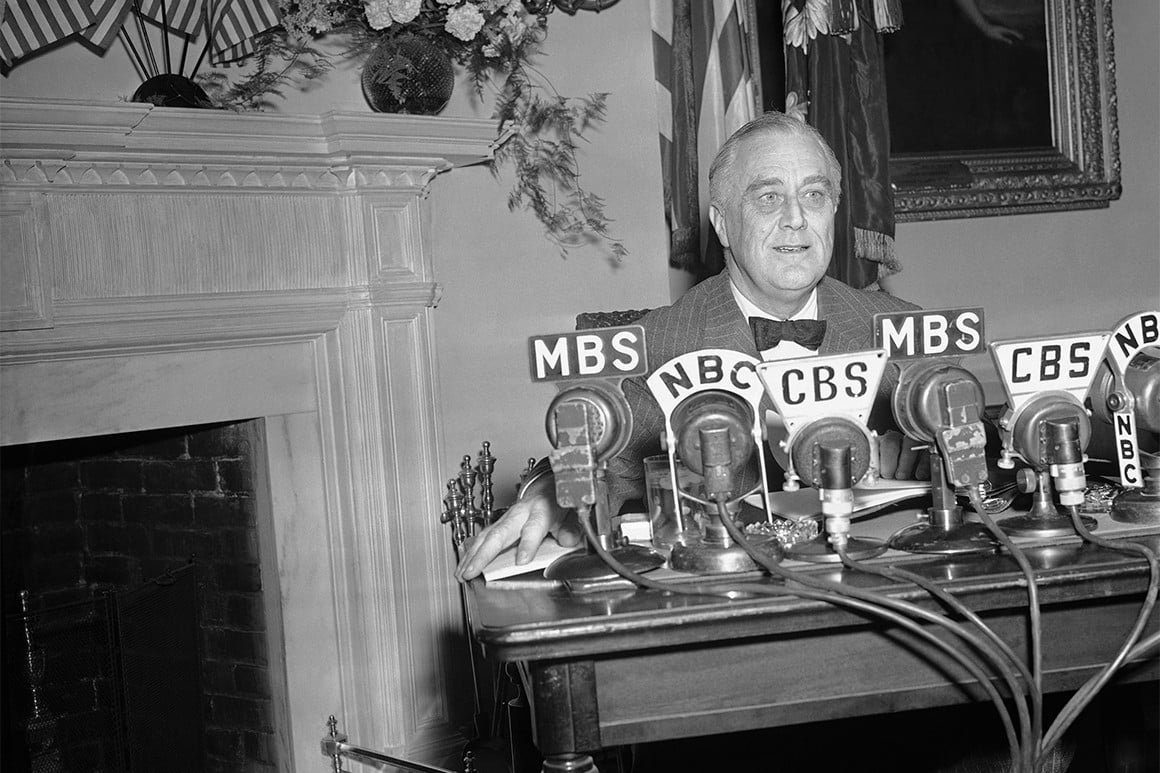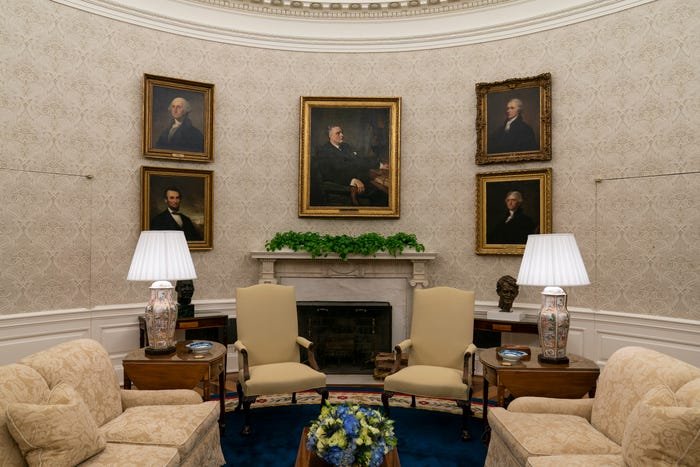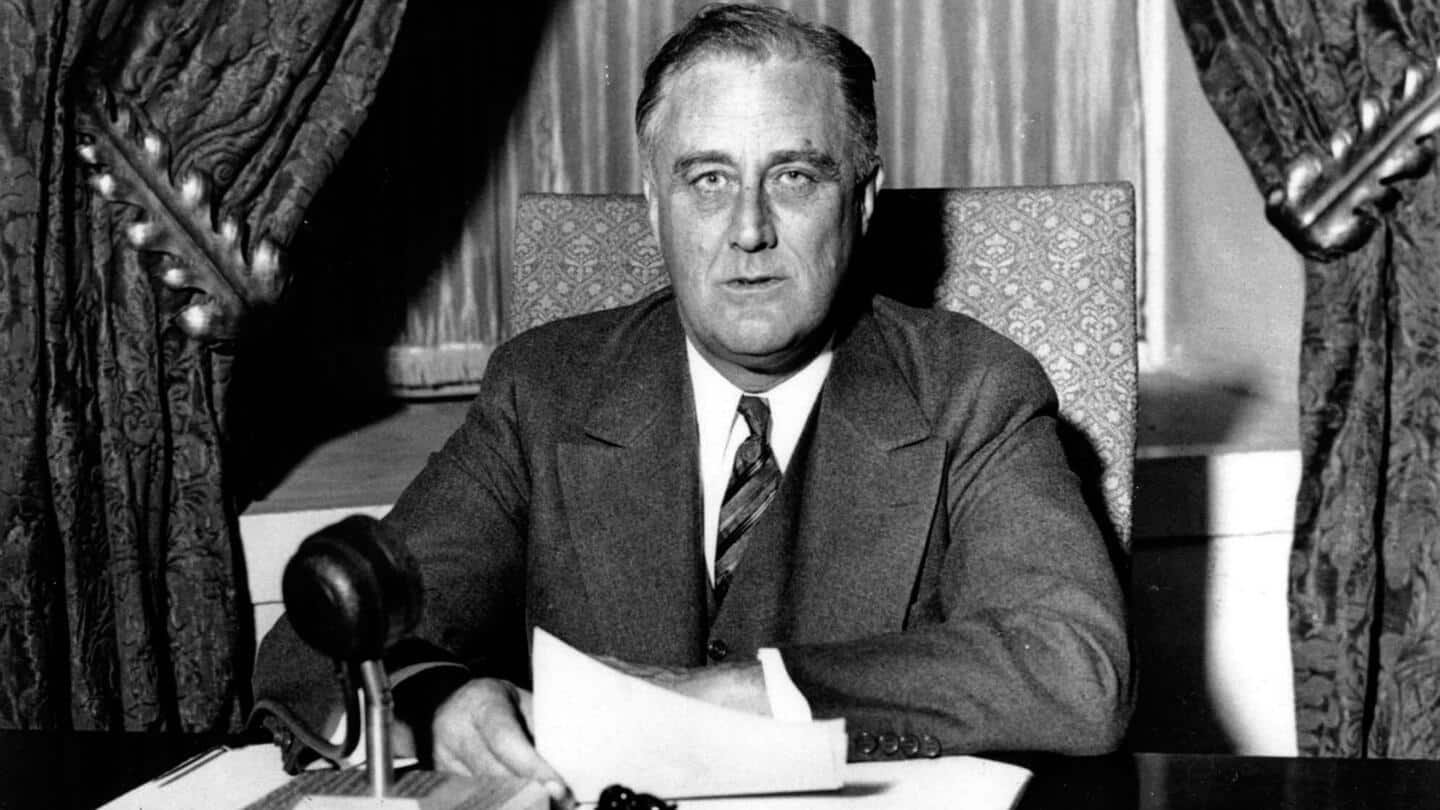On March 12, 1933, eight days after his inauguration, President Franklin D. Roosevelt gives his first national radio address—or “fireside chat”—broadcast directly from the White House.
Roosevelt began that first address simply: “I want to talk for a few minutes with the people of the United States about banking.” He went on to explain his recent decision to close the nation’s banks in order to stop a surge in mass withdrawals by panicked investors worried about possible bank failures. The banks would be reopening the next day, Roosevelt said, and he thanked the public for their “fortitude and good temper” during the “banking holiday.”

READ MORE: How FDR’s ‘Fireside Chats’ Helped Calm a Nation in Crisis
At the time, the U.S. was at the lowest point of the Great Depression, with between 25 and 33 percent of the workforce unemployed. The nation was worried, and Roosevelt’s address was designed to ease fears and to inspire confidence in his leadership. Roosevelt went on to deliver 30 more of these broadcasts between March 1933 and June 1944. They reached an astonishing number of American households, 90 percent of which owned a radio at the time.

Journalist Robert Trout coined the phrase “fireside chat” to describe Roosevelt’s radio addresses, invoking an image of the president sitting by a fire in a living room, speaking earnestly to the American people about his hopes and dreams for the nation. In fact, Roosevelt took great care to make sure each address was accessible and understandable to ordinary Americans, regardless of their level of education. He used simple vocabulary and relied on folksy anecdotes or analogies to explain the often complex issues facing the country.
Over the course of his historic 12-year presidency, Roosevelt used the chats to build popular support for his groundbreaking New Deal policies, in the face of stiff opposition from big business and other groups. After World War II began, he used them to explain his administration’s wartime policies to the American people.
The success of Roosevelt’s chats was evident not only in his three re-elections but also in the millions of letters that flooded the White House. Farmers, business owners, men, women, rich, poor—most of them expressed the feeling that the president had entered their home and spoken directly to them. In an era when presidents had previously communicated with their citizens almost exclusively through spokespeople and journalists, it was an unprecedented step.
ATTENTION READERS
We See The World From All Sides and Want YOU To Be Fully InformedIn fact, intentional disinformation is a disgraceful scourge in media today. So to assuage any possible errant incorrect information posted herein, we strongly encourage you to seek corroboration from other non-VT sources before forming an educated opinion.
About VT - Policies & Disclosures - Comment Policy





FDR is consistently rated in TOP 5. Most lists have LINCOLN at #1. Washington # 2. FDR usually falls into # 3.
Imagine Roosevelt with twitter account tweeting as same as…….. 😀
Old Mr. President Joe has been around for a long time, and around Washington for a considerable portion of that time.
I would imagine his budding designs on the Oval Office were first kindled very early in his political career, if not his legal, and maybe even sooner than that.
My point is, his desire to become President has had a very long seasoning period, and by the grace of God, America may be blessed in that Mr. Biden is now old enough to have the wisdom for true greatness.
Let’s hope.
If President Biden aspires to emulate President Roosevelt, in his spirit of service, fellowship with ordinary Americans, and compassion, I’ll be thrilled.
Comments are closed.